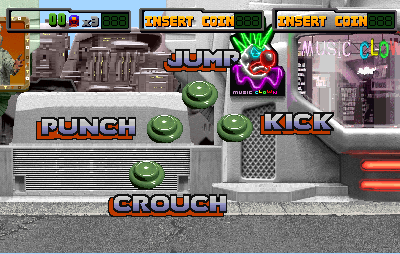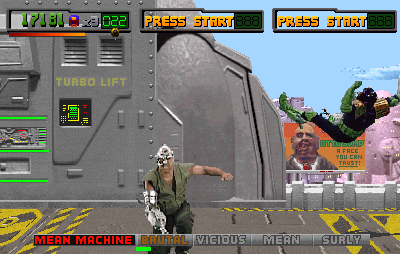|
|
Judge Dredd Platform: Arcade (Midway T-Unit) Developer: Midway Publisher: Midway Released: 1992/1993 (Unreleased) Genre: Scrolling Brawler Players: 1-3 (Co-op) | ||
|
|
Judge Dredd Platform: Arcade (Midway T-Unit) Developer: Midway Publisher: Midway Released: 1992/1993 (Unreleased) Genre: Scrolling Brawler Players: 1-3 (Co-op) | ||





